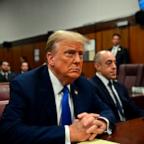'Flash Crash' Safeguards Could Leave Some Small Investors in the Lurch
Circuit breakers for stocks could hurt small investors.
June 18, 2010— -- An experimental circuit breaker program starts next week to slow superfast electronic stock markets during episodes of severe volatility. Regulators say they plan to monitor any unforeseen outcomes and learn from them.
But already there are large players on Wall Street warning of potential pitfalls, and it's the small investor, not large hedge funds, who could be most vulnerable.
One major concern, for example, involves exchange-traded funds, or ETFs. These are essentially mutual funds which trade on exchanges the same way a single stock does. The new circuit breakers will only apply to the individual stocks in the Standard & Poor's 500, not other stocks, and not ETFs -- not even ETFs that are comprised of stocks in the S&P.
A situation in which S&P stocks, but not ETFs linked to them, get halted in a market meltdown might leave ETF owners, many of them small "buy and hold" investors, susceptible to a spill-over of panic selling. This, in turn, could conceivably trigger scary, nearly instantaneous share-price implosions, or exactly what market regulators are trying to prevent.
That's just what happened May 6 when the stock market suddenly dropped, and then suddenly recovered. The Dow Jones Industrial Average, a benchmark of 30 blue chip stocks, fell nearly 700 points in a matter of minutes that afternoon, part of a larger, staggering intraday decline of nearly 1,000 points, the largest such decline ever. The Dow did rebound that day, making up around two-thirds of the point loss but leaving market participants more than a little spooked.
This event, dubbed the "flash crash," still has not been entirely explained. In the aftermath, regulators moved at what for them was light speed to create a pilot program to halt trading automatically in S&P stocks that experience 10 percent moves, up or down, in any five minute period. It's well intended, but, industry members say, may have unintended consequences.




